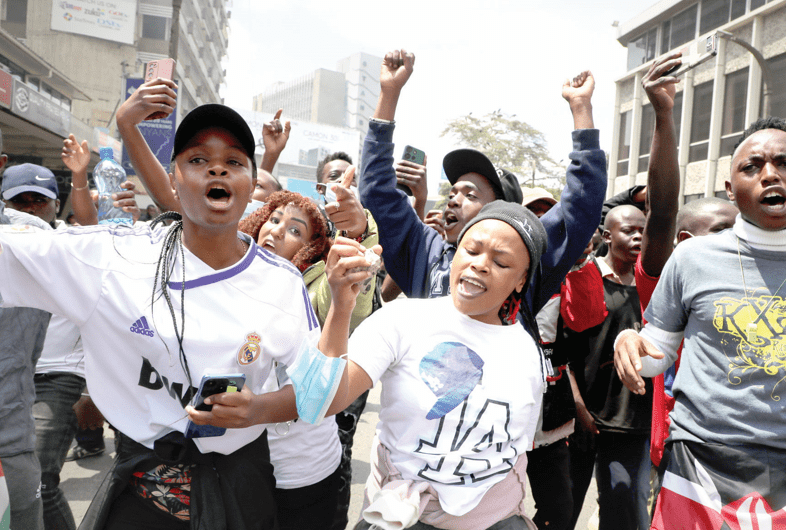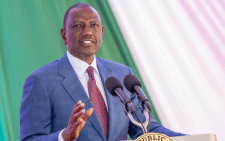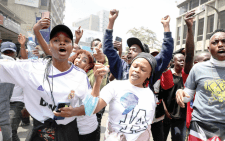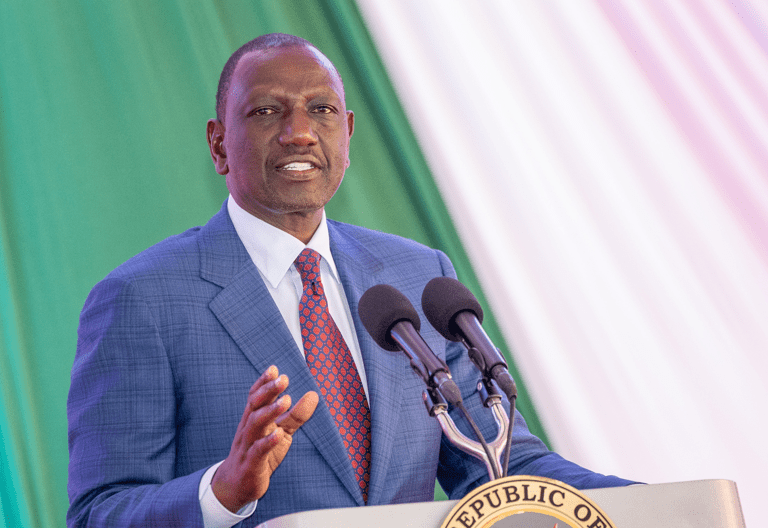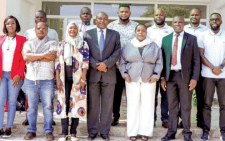Kenyan youth made the boldest statement in the nation’s history during their recent mass protests that jolted the government to its core.
The unprecedented massively public-supported Gen Z protests whose ramifications are still being felt to date, defined the youth’s indelible status in Kenya’s political and economic equation.
By forcing President William Ruto to withdraw the unpopular Finance Bill, 2024 and reshuffle his Cabinet to include Opposition leader Raila Odinga’s key allies, the youth robustly demonstrated their enduring power in shaping the nation’s destiny.
The enlightened young men and women, most of them university students, anchored their actions in the Constitution to expose the frailties of leadership hampering good governance and economic growth that continue to harm them most.
Highlighting a toxic cocktail of corruption, unemployment, negative ethnicity, political deceit, and arrogance, the youth are demanding radical changes in the management of the nation’s current and future political and economic affairs.
And they want (rightly so) to be at the Centre of this urgently required rapid transformation out of the prevailing quagmire stifling democracy and socio-economic development in Kenya and other Sub-Saharan African countries.
Mounting public pressure
Besides the good governance, human rights and violation of the Constitution issues, there is mounting public pressure for justice to be meted out to the victims of the anti-government Gen Z protests to restore national cohesion and reconciliation.
The high cost of living, tribalism and corruption are also at the top of the agenda as the people demanding an all-inclusive national dialogue.
Raila has joined the calls demanding compensation for every victim of police brutality, the dismissal of all protest-related cases and the release of all abductees
and those in jail. He has also supported the prosecution of all security sector perpetrators who facilitated atrocities on peaceful Kenyans and the resolution of outstanding healthcare workers and teachers’ grievances.
In a paper titled ‘Understanding the Youth-Led Protests in Kenya around the Finance Bill, 2024: What are the Salient Issues?’ Prof Philip Nyinguro, a former chairman of the Department of Political Science and Public Administration at the University of Nairobi, explains the real issues behind the unfolding youth activism and the recent Gen Z protests.
“The Finance Bill, 2024 was merely the spark or trigger of a bomb that had been waiting to explode. The Gen Z cohort form the bulk of Kenya’s population and the 2019 census showed that 75 percent of the population or 35.7 million was below the age of 35 years.
Tribeless generation
“This generation exhibits characteristics remarkably different from the generations before it. It is “tribeless,” their protests are largely de-ethicised, making it difficult to divide their movement on ethnic lines. Political elites who have always used ethnicity to break up anti-regime movements failed to penetrate them,” notes Nyinguro.
He says that the remarkable solidarity among this cadre of youth notwithstanding and though defined by age, they can be differentiated into several categories.
First, the majority in formal and informal employment, arguably beneficiaries of the Kibaki-era reforms in the education sector, many who also got the opportunity to join universities whose number increased exponentially from only about 20 to 70 today.
Many of them have been employed in both the public and private sectors and have been directly affected by the fiscal and tax policies of the current regime, including the 2023 Finance Act and the hitherto proposed 2024 Finance Bill.
Many of them could also not get jobs in the formal sector and started their own “hustles.” These “hustlers” are believed to have overwhelmingly voted for the current regime, based on the latter’s hustler-based campaigns.
It is instructive that businesses started by this group had suffered from the devastating effects of Covid-19 in 2020-2022. They, therefore, would loathe government policy that they would perceive to interfere with the post-Covid recovery of their “hustles”.
Another category are university students who have continued the 1970s through early 1990s tradition as part of anti-status quo protests. From only one in the 1970s and early 1980s to today’s 70, virtually each county hosts at least one university.
The presence of university students boosted attendance and gave more impetus to protests in counties outside Nairobi. Furthermore, university students have several grievances that have fuelled their anger against the regime.
Complaints about increases in fees, poor learning environment, and long delays in disbursement of loans by the Higher Education Loans Board. They have also argued that the tax burden is undermining their parents’ and guardians’ ability to support their university education.
President Ruto, bowing to pressure, last week formed a 129-member committee to review a contentious new funding model for higher education amid an uproar that it had made education more expensive and disadvantages students from poor backgrounds.
While technology, agriculture provides the most viable path to the democratic and socio-economic transformation, the situation is compounded by the continent’s shocking vulnerabilities exacerbated by the impacts of climate change and the lingering effects of the Covid-19 pandemic.
African countries urgently need resilient economies, with the youth and women as active principal participants. Building resilience can be summarised in simple terms like “anticipation, readiness, and early preparation,” says United Nations
Environment Programme (UNEP) Head of Global Environment Monitoring Systems Dr Richard Munang.
Multiple challenges
He cites the African proverb “It is better that trials come to you in the beginning, and you find peace afterward than for them to come to you at the end” to aptly capture the predicament facing Kenya exposed by the youth protests amid emerging multiple global challenges including climate change.
“Africa is heating up twice as fast as the rest of the globe, and with 20 countries already warming faster than the globe, this means that the safe threshold of 1.5% will be breached faster in Africa than in any other region. But climate change is only one red flag,” cautions Munang in the article ‘Rethinking Economics for Africa through the Climate Action Prism’.
It extends into the realm of economic resilience. After the pandemic, countries across the globe offered multiple rounds of economic stimulus to spur growth (around $12 trillion in stimulus packages). This was affordable because this credit was accessible at interest rates as low as 0% in some cases.
The same convenience was unavailable for Africa, whose needs were pegged at
$100 billion. However, their economies' low productivity has put them at high risk of debt capital. Explaining the reality of minimal value addition, Munang says the proportion of manufacturing value addition stagnating at an average of just 10% of GDP since the 1970s has hurt Africa in its hour of need.
“But what is economic productivity,” he poses? “Studies show that human capital is 15 times the value of natural capital and four times the value of produced capital. A productive citizenry is, therefore, the bedrock of productive economies.
“How well public resources are invested in nurturing such a population provides the best indicator of how productive our economies can be under changing climate. But we must first ask where these people are engaged right now,” Munang affirms.
Bad governance and poor economic policies have locked the youth out of productive economies, favouring the political class and their exclusive network, as the Gen Z protests unraveled extreme public resentment at this unacceptable state of affairs.
Over 80% of Africans are engaged in the informal sector, an indispensable part of the continent’s story. This is the chassis on which Africa’s economic engine thrives, employing millions in rural and urban areas, many depending on the agricultural and agribusiness sector, according to Munang.
“Leveraging this sector to create inclusive economic opportunities is our fierce urgency now. We urgently need to re-orientate our economies by leveraging climate action solutions.”
The youth are the focal point in creating inclusive economic opportunities, especially in the transformation of agriculture and food systems.

